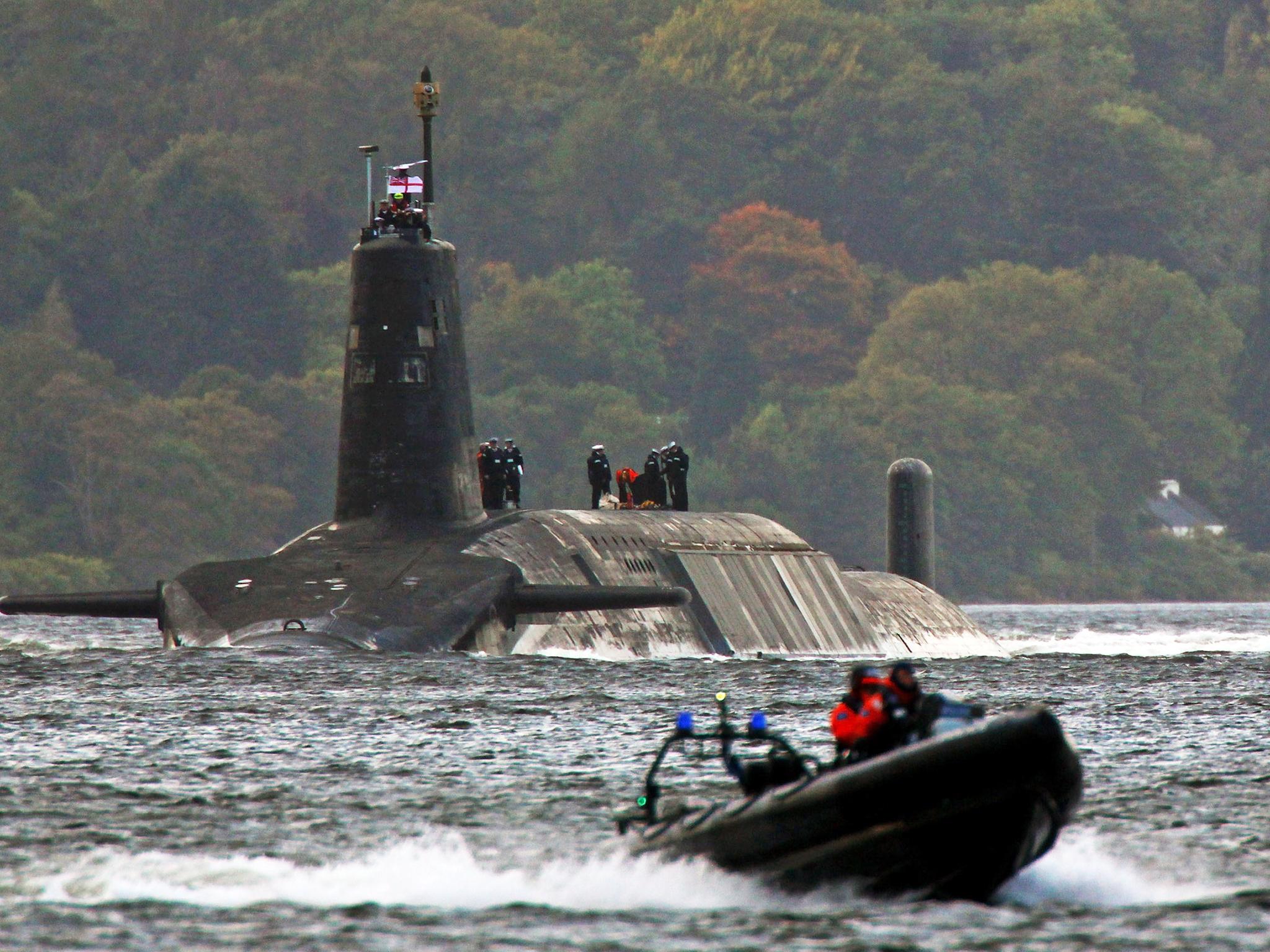What does Brexit mean for Trident, intelligence and national security?
The UK may well find it difficult to meet defence pledges it has made, let alone make new ones

Discussing the security aspect of Brexit, Admiral James Stavridis, of the US Navy, was of the view that “a new British government will presumably be a very motivated Nato partner”.
The former head of Nato forces in Europe held that “now it has chosen to become a relatively marginal economic player on the international stage” the UK will choose to show its standing, not least in the relationship with America, by demonstrating commitment to its own defence and that of allies.
The problem with this is that becoming “a relatively marginal economic player” means there will be budget cuts and defence is one of the sectors likely to suffer. The UK may well find it difficult to meet some of the defence pledges it has already made, let alone make new ones.
The Government, such as it is at the moment, insist that security will not be neglected in the future and David Cameron will repeat this at the Nato summit in Warsaw next week. However, he will be gone soon and his successor will have to make a raft of difficult choices.
The projects under scrutiny will range from the Lockheed Martin F-35 Lightning II planes for the two new aircraft carriers being built at vast expense to the replacement of the Trident nuclear deterrent system. The slide of sterling is a big factor in this. As Francis Tusa, of the journal Defence Analysis, points out “considering that about 40 per cent of the big defence programmes are tied to the dollar, they are going to have to think hard”.
There is now every likelihood that the Commons vote on Trident, scheduled for this month, will be delayed. The Labour defence team, which was supposed to be looking at various options, has different personnel every day, and the Tories are indicating that they are prepared to wait for a new government to form before the debate takes place.
The question then would be what happens to Trident if Scotland becomes independent after a new referendum. The SNP is adamant that Trident must be removed from Faslane, and a written constitution would ban nuclear weapons from being based in Scotland.
Two possible sites to rebase the submarines would be Milford Haven in Pembrokeshire and Plymouth.
When the original plans were being considered for basing Trident’s predecessor, Polaris, in the 1960s, Milford Haven was on the shortlist. One of the reasons it was rejected at the time was because Esso had just established an oil refinery in the city and the MoD decided that it was too risky to have submarines and oil tankers in same confined stretch of water. Now Milford Haven also has liquefied natural gas facilities and handles 30 per cent of the UK’s gas supply.
Plymouth is the main nuclear repair and refuelling facility for the Royal Navy and is also the home to Trafalgar-class submarines. However, it will not be able to recreate the facilities at Coulport, a huge floating dock where warheads are placed inside missiles for Faslane. Such a facility must be at least three miles away from any population centres.
Then, again, we come to the matter of costs. In 2012, in anticipation of the Scottish referendum to come, a cross-party group of MPs considered the issue of moving Trident from Scotland concluded that it would be “highly problematic and very expensive”. These problems would be magnified many times in a faltering post-Brexit economy.
At the other end of the security spectrum from nuclear weapons is counter-terrorism and intelligence sharing. Before the referendum, Sir John Sawers and Jonathan Evans, the respective former heads of MI6 and MI5, declared that if there is Brexit “the reason we would be less safe is that we would be unable to take part in decisions that frame that sharing of data, which is a crucial part of counter-terrorism work”.
Intelligence sharing with the US, crucial to security, would continue. This would also be the case with intelligence sharing with the English speaking “Five Eyes” countries – US, UK, Canada, Australia and New Zealand – from which the European Union, in any case, is excluded.
Terrorism, and Islamist terrorism in particular, is, as we have seen, a multinational brand. Unlike other multinationals, the jihadists will not abandon Britain and move to the European Union after Brexit. The issue of information sharing will be part of the talks with Brussels. There is little doubt that Britain and the European Union will need each other to try and protect themselves from the bombers.
Join our commenting forum
Join thought-provoking conversations, follow other Independent readers and see their replies
Comments